Egypt is on the cusp of dramatic change. For the first time in three decades, the country will soon have a new president, either through election in 2011 - which would be unprecedented in Egyptian history - or through the death of the ailing 82-year-old president Hosni Mubarak, an event that has the potential to set off the most significant civil unrest in the Middle East since the 1979 revolution in Iran.
The Egyptian government reportedly has a detailed plan to shut down the country if Mubarak dies, including such details as the "mournful Quranic verses" that will play on state television. The black-clothed and plain-clothed security forces, well experienced in using their batons to squelch dissent, would be mobilised en masse.
Still, it is impossible to predict what would happen if, despite Egyptians' reputation for political lethargy, opposition groups managed to put tens of thousands of followers into the streets of Cairo to protest what many expect will be an attempted handover of power to Mubarak's son, Gamal.
The key to any roadblock on the path to such "republarchy" lies with the Muslim Brotherhood, the world's most influential Islamist movement and far and away the largest and best-organised counterweight to Mubarak's National Democratic Party (NDP). Change in Egypt, for better or worse, does not materialise without the Brothers.
When former International Atomic Energy Agency chief and Nobel Prize winner Mohamed ElBaradei - the great hope of Egypt's secular leftists - returned home this year and launched a petition drive to demand the government lift its most onerous national security laws and reform electoral practices, his National Association for Change gathered 106,661 signatures in support by early September. The Muslim Brotherhood came up with more than 650,000.
The Brotherhood has 88 seats in parliament, compared to the 34 politicians representing all other non-NDP parties.
Protest groups such as the Egyptian Movement for Change, or Kifaya, which became a Western media darling during the 2005 election, rely on the Brotherhood to put thousands of supporters into the streets.
Yet with Egypt's November 28 parliamentary elections approaching, the Brotherhood finds itself in flux.
Long repressed by authorities and still technically outlawed, the group is coming off a landmark five-year term in which it served as the largest-ever minority bloc in Egypt's short multi-party political history and the loudest critic of Mubarak's 30-year authoritarian rule.
But the Brothers have bucked their best allies in the opposition by refusing calls for an election boycott, which some say is the most effective way to counter Egypt's gerrymandered electoral system. This, even as the Brotherhood itself believes it is about to suffer a rigged defeat at the polls that will reduce its representation in parliament by more than half.
Some Brotherhood members have said publicly that the choice to participate is a mistake, with others calling it a missed opportunity that reflects the group's internal strife and indicates the dearth of creative strategic thinkers in the conservative, 82-year-old organisation.
Others see the practical advantage to be had by holding even a slimmed parliamentary presence, while the group's leadership insists that their course is set by broad consensus and does not shift with the political winds.
As the Brotherhood is pulled inexorably toward a post-Mubarak world in which it figures to be a major player, nobody knows quite where it is headed.
The Brotherhood, five years on
Essam al-Arian, a member of the Brotherhood's cabinet and its unofficial spokesman, is a wanted man. On a recent night in Cairo, he was juggling calls from multiple journalists on his mobile phone, dealing with Egyptian television networks hungry for the group's opinion in the run-up to the election.
Even with many predicting the Brotherhood will win only 20 or 30 seats and be overtaken by the liberal but regime-friendly Wafd party, Arian said the Brotherhood is prepared to press forward.
"It is clear to all observers that we are going on [with] our strategy to participate politically," he told Al Jazeera. "Some people want us to be out of the seats, but ... we struggle [against] any attempt to exclude us from the political scene."
The Brotherhood, he said, is satisfied with its performance in parliament over the past five years, despite the suffocating effect of the NDP's majority hold on government.
In 2005, with the Bush administration publicly pressuring Mubarak to hold free and fair elections, the Brotherhood swept into parliament, winning nearly 20 per cent of the 444 seats up for the vote (10 deputies are appointed directly by Mubarak).
The Brotherhood's 88 victorious politicians officially ran as independents, since religious political parties are banned in Egypt, but their real affiliation was well known, and their campaign posters featured the group's slogan: "Islam is the solution."
Despite the tagline, the Brotherhood operated along straightforward reformist lines in parliament.
In a 2006 paper, Samer Shehata and Joshua Stacher examined the Brotherhood's new political life and noted several achievements: mobilising politicians to oppose the renewal of emergency laws in place since the assassination of Anwar al-Sadat and vowing to publish the names of those who voted in favour; protesting and calling for a no-confidence vote against Mahmoud Abu al-Layl, the justice minister many held responsible for allowing fraud in the 2005 vote; and raising awareness about and criticising the government's response to the H5N1 or "bird flu" virus.
Predictably, though, the Brotherhood's practical efforts to actually write, change or annul laws have been stifled.
"Of course we are now lacking freedom, we are lacking democracy, we are now suffering a lot from restrictions on the media," Arian said. "The regime is more old, more rigid, more [of a] dictatorship. All of this is changed backwards, not forwards."
Still on the scene
Since the election, the regime has cracked down. According to the Brotherhood, around 600 of its members have been arrested since the announcement in October that the group would participate in the 2010 vote but challenge only 30 per cent of the seats.
The government has struck at the Brotherhood's finances as well: in 2007, Khairat al-Shater and Hassan Malik, two Brotherhood members said to play prominent roles funding the group, were tried and convicted on money laundering and terrorism charges in a military court along with 25 other members.
According to the Carnegie Endowment for International Peace, the Brotherhood will field only 107 candidates for the upcoming vote, even as parliament has increased to 508 seats with the addition of 64 spots reserved for women. The Brotherhood at first put forward 135 candidates - a drop from the 160 they nominated in 2005 - but government officials disqualified 28.
Some outside observers have speculated that the result of a Brotherhood internal cabinet election last year signalled a power shift from so-called "moderates" like Arian, who reportedly favour challenging the regime at the ballot box, to "conservative" leaders, including current leader Mohammed Badie, who reportedly want to put more emphasis on the Brotherhood's traditional and quieter areas of expertise: social work and proselytising.
The December election for the 16-member executive bureau, called the Guide's Office, saw defeats for leading Brotherhood reformists such as Abdelmonem Abulfotouh and deputy general guide Mohammed Habib, though Arian retained his seat. The following month, Badie was elected the new General Guide - the Brotherhood's top leadership position.
Marc Lynch, an associate professor at George Washington University and an Egypt watcher, wrote on the Foreign Policy website after the cabinet vote that it "likely signals both a withdrawal from political engagement and possibly some serious internal splits".
"Such an internal retreat from democratic engagement has seemed increasingly likely ... as regime repression and political manipulation slammed the door in the face of [Brotherhood] efforts to be democrats," he wrote.
But Arian claimed that analysis missed the mark. The Brotherhood remains eager to use the political arena to promote its Islamist solutions to Egypt's quagmire, he said.
"That is our duty now, to make the link between the social and economic problems and the ultimate political reform," he said. "To explain such issues to the people and to create the link in their minds between poverty, unemployment, the constitutional crisis and the political situation."
Dissent in the ranks
But Abdelrahman Ayyash, a 21-year-old Brotherhood blogger, said that choosing to participate in the election this year was a mistake that has created a schism between the Brotherhood and reform leaders such as ElBaradei and Ayman Nour, the former presidential candidate for the secular Ghad party who was imprisoned and reportedly mistreated during the 2005 election.
Ayyash, a computer engineering student who said he sees a role for "liberal Islamists" in reforming Arab societies, faulted the Brotherhood's new conservative leadership for trying to "build a bridge" to the regime and said that reformist voices were being excluded.
"The Muslim Brotherhood now has no strategic point of view, in my opinion," he said.
Although Badie claimed that a survey of the group's parliament, or Shura Council, yielded 98 per cent support for participating in the election, Ayyash pointed to statements made by Hamid Ghazali, a Cairo University professor and former advisor to previous general guide Mohammed Akef, who said that no more than 52 per cent of the council agreed.
"The organisation will benefit a little from participating in the election, but what I'm worried about is the loss of the other parties, or of the other Egyptian activists or politicians, who will lose a lot," he said. "What we can make or gain by boycotting the election will be more" than what the Brotherhood can achieve in parliament.
'The opposition lost an opportunity'
The Brotherhood's decision to run may spring mostly from a simple desire to ensure its immediate survival, said Michele Dunne, a senior associate at the Carnegie Endowment and former US government Middle East analyst.
"As a banned organisation that's constantly under the threat of being closed down ... I think they feel that having deputies in the assembly who have parliamentary immunity and who have a public platform to criticise any measures taken against the Brotherhood and who are in the media day in and day out, this is of some value for them," Dunne said.
Earlier this year, a group of Egypt's secular minority parties, including the Wafd, socialist Tagammu, liberal Democratic Front, and the nationalist Nasserists, put together a list of demands that they presented to the government. They asked for some electoral reforms - "simple stuff," Dunne said - and threatened a boycott if their demands were not honoured.
"They were stiffed, 100 per cent," she said. The Democratic Front party and Nour's Ghad party are the only groups that have followed through on boycotts.
But the Democratic Front is a new party and holds no seats in parliament, and other opposition groups, such as Baradei's National Association for Change and the April 6 Movement, are not parties and have nothing to lose when they make passionate calls for boycotts, Dunne said.
Shadi Hamid, the director of research at the Brookings Institution's branch in Qatar and a close observer of the Muslim Brotherhood, said he understood the Brotherhood's rationale but still disagreed with their decision.
"This was the time to boycott," he said. "The opposition really lost an opportunity."
Hamid, who has written recently about free but "meaningless" elections in the Arab world, sees little actual progress for opposition groups when regimes find ways to exclude candidates on technicalities and maintain upper houses of parliament with veto power over lower houses.
In a mostly overlooked June election for Egypt's upper house, the Shura Council, which was marred by reported vote-buying, police interference and violent clashes, the Muslim Brotherhood won no seats, while the NDP won 80 of 88.
Regimes like Egypt's rely on the facade of democratic freedom to appease their allies and sponsors in the West, Hamid said, and a full opposition boycott would have undermined this claim.
But the Brotherhood continues to preach patience, looking at their decades of work and seeing history on their side. "What makes sense for the Brotherhood might not make sense for the future of Egypt's democracy," Hamid said.
Built for the long haul
If the Brotherhood's behaviour toward Egypt's progressives seems questionable, it is worth remembering that the group is not really a political party, and that it has deep roots as a religious and social movement that many join simply to become better Muslims.
Even Hamid acknowledges that with at least 300,000 dedicated members, a "massive bureaucracy," and a constituency that is more conservative than its leadership, the Brotherhood should not be expected to make fast political adjustments.
"We have solidarity, not individuality," Arian said.
But that might be a problem if rifts in the group become serious, said Andrew Albertson, the executive director of the Project on Middle East Democracy.
"There aren't a lot of high-level leaders who everyone respects," he said. "If you don't have someone who everyone commonly respects, it's hard to defuse the tension in a movement like this."
Working in the Brotherhood's favour, however, are its structure and elections system, which are arguably more democratic than Egypt's own.
As Hamid describes it, each member belongs to a local osra, or family. With around 10 to 20 other members, they meet every week and share an Islamic educational curriculum. Fifty families make up a sha'aba, or branch, and 10 branches make up a district. Multiple districts comprise governorates, which do not necessarily correspond to the 29 that make up the official Egyptian state.
Since 2004, the Brotherhood has held leadership elections at every level of its organisation, Hamid said.
The Brotherhood's parliament is similarly elected, though there have been allegations that supposedly secret ballots were compromised when members have visited others at home to apply pressure to vote a certain way. Egypt's repressive security situation also means that not every member is able to cast a vote, as reportedly occurred during the recent Guide's Office election.
Such measures have ensured the Brotherhood's survival, even its flourishing, in a political environment that is, to say the least, a harsh place for opposition elements to survive. Around two million Egyptians cast their vote for Brotherhood candidates in 2005, Arian claimed.
Though Brotherhood candidates are almost assuredly going to fare poorly this year, and the organisation will probably undergo an internal debate over its ideology in the post-election shakeout, its participation and the sliver of representation that will come from it grants the group a continued voice and legitimacy. It also means they retain a rhetorical right to complain about electoral procedures.
"Unless someone goes out and participates, it's going to be hard to point out the flaws in the system," Albertson said.
By contrast, the Brotherhood's political party in Jordan - the Islamic Action Front (IAF) - chose to sit out this year's parliamentary vote, anticipating - as Hamid wrote - that even a multi-party, "fair" election for the lower house would be meaningless and rigged. Hamid supported the boycott, but Albertson said the IAF will probably regret being unable to participate in parliament. Boycotting the vote is not likely to affect Jordanians' views of their government's legitimacy one way or the other, he said.
'Liberal Islamists' in an age of Islamophobia
By holding on to seats in parliament, the Egyptian Brotherhood also knows that its members will enjoy the general immunity from prosecution granted to elected officials and will be able to participate in official government meetings with representatives from the US, even if such contacts are not supposed to include discussion of Brotherhood-specific issues.
US embassy personnel sometimes meet behind the scenes with Brotherhood members, and there are no rules that say US diplomats cannot talk to the Brotherhood when they happen to bump into members at international gatherings, Hamid said. But whatever discussions the Brotherhood has had with the US do not seem to have resulted in any payoff with the Obama administration.
In a speech delivered in Cairo in 2009, Obama vowed to support democracy and the rule of law, calling them "human rights," but his effort on such issues in Egypt has been tepid. The Bush administration, which eventually walked back from its vigorous programme of democracy promotion after a Hamas victory in Palestine, was more outspoken before the 2005 Egyptian election. Many believe this led to the initial opening that allowed the Brotherhood to gain so many seats in the first round of voting.
The Brotherhood is constantly insecure about its perception in the West, Hamid said, fearing that in a post-September 11 age of Islamophobia, it will be lumped in with al-Qaeda.
"We won't be another Iran," Ayyash insisted, adding that he believes Islamists will support US national security interests. "The Islamists in general are trying to find the way between the liberal values of equality and citizenship and to put them in action, but from the Islamic aspect."
The role of women and members of other religions, especially whether a woman or a Coptic Christian, for instance, should be allowed to assume an elected position of power, remains a source of heated debate within the Brotherhood, Dunne said. The same goes for homosexuality, sexual liberty and drug and alcohol use. But the Brotherhood has reached general consensus on the principle that the ultimate authority in Egyptian society should be derived from the people, not religion, Dunne and others say.
"I believe that moderate Islamists will give the freedom for parties to form even if these parties are fighting their ideology," Ayyash said. "If the people say yes to homosexuality, for instance, if I were in power I think that I would leave power ... and I'll be in the opposition to try to convince people that this is wrong."
"But," he added, "I think Egyptians at this moment will refuse that because it is against the Quran."
Obama lays low
Despite such paeans to democracy, the Brotherhood remains officially unsupported and unprotected by the US.
Though the US state department did issue a statement about the upcoming parliamentary vote this week, employing the familiar rhetoric of "free and transparent" elections, Dunne said that the "few things" Obama officials have tried so far to promote democracy in Egypt "have not been all that successful".
But the administration's comparative caution is an improvement, said Brian Katulis, a senior fellow at the Center for American Progress and a Middle East specialist.
"I don't think the Bush administration was all that smart in trying to advance its freedom agenda," he said. "I don't think it led to any openings at all, and in fact it elicited the sort of response that led to a retrenchment."
The Bush model involved sending secretary of state Condoleezza Rice to "scream from the rooftops," Katulis said. (In 2005, Rice delivered a speech at the American University in Cairo in which she said that "for 60 years, the United States pursued stability at the expense of democracy in the Middle East, and we achieved neither".)
"What [the Obama administration is] trying to do is be much more effective at figuring out what would create the space for those reformers who want to push forward pragmatic change," Katulis said.
In his view, that should mean not picking favourites, whether they might be ElBaradei or the Muslim Brotherhood.
"We always look for the Nelson Mandela-like figure," he said. "What's more important than individual leaders is building a system that sustains itself."
By most accounts, Egyptians today are both discouraged and disengaged with their country's political process. Even if one assumes the government's turnout numbers are accurate, only around 9 per cent of the total population cast a vote in the presidential race in 2005. And observers are nearly unanimous in their belief that democratic evolution will not proceed in Egypt without the Brotherhood.
"There was a certain group that we saw had a dominant voice under the Bush administration - neoconservatives who felt that you could have democracy without Islamists," Katulis said. "I think those people haven't spent much time on the ground in places like Egypt."
To deny the Muslim Brotherhood a strong role in government, as Mubarak seems intent on doing, means a huge swath of Egyptian society remains voiceless.
"It's hard to imagine a process of democratisation in Egypt that does not involve the pious middle class, which the Muslim Brotherhood so ably represents," Albertson said.
Obama should engage directly with the Brotherhood, said Hamid, adding that he believes Gamal Mubarak would be even more hostile to them.
"Liberals and leftists unfortunately can't bring people to the streets in the Arab world," Hamid said. Islamists have the benefit of an existing infrastructure for disseminating their message - the mosque - and political discourse in the region has historically circled around Islam, because "this is the language that people have".
Or in Ayyash's words: "The Arab people are very emotional and a very religious people, and they are more affected by the speech of the moderate Islamists than the regimes."
Source: Al Jazeera





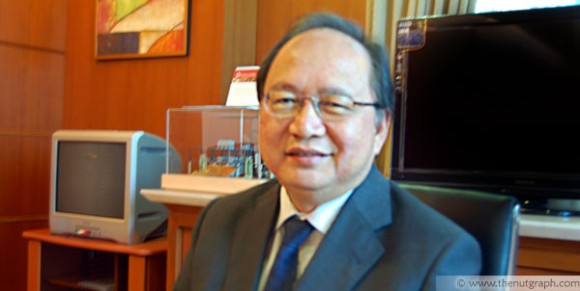
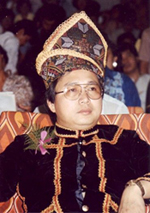
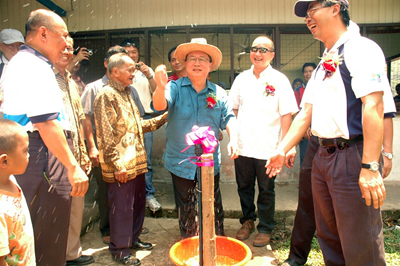
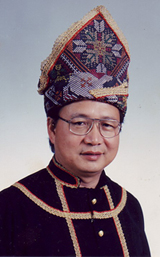
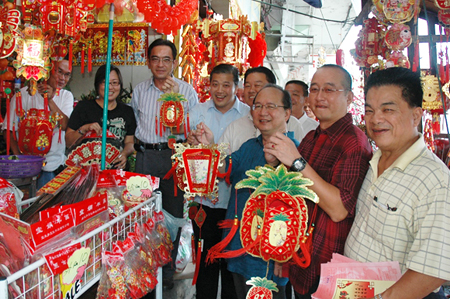
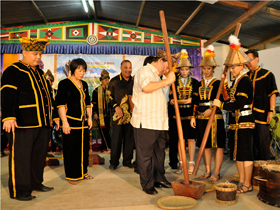
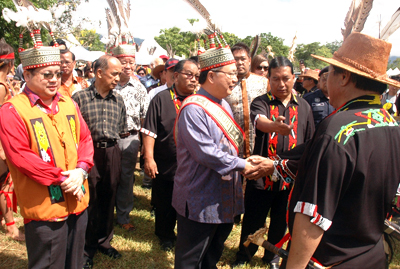



 By FMT Staff
By FMT Staff The election also saw Zaid Ibrahim, a deputy president aspirant, pulling out of contest citing election fraud and manipulation. He had set Dec 16 to resign from the party.
The election also saw Zaid Ibrahim, a deputy president aspirant, pulling out of contest citing election fraud and manipulation. He had set Dec 16 to resign from the party.

